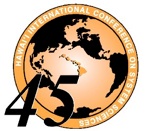Development Methods for E-Government Minitrack

Co-chairs
Ralf Klischewski (Primary Contact)
Faculty of Management Technology
German University in Cairo
Al Tagamoa Al Khames 11835 New Cairo City, Egypt
Phone: +20-2-27590682
Fax: +20-2-27581041
Email: ralf.klischewski@guc.edu.eg
Tomasz Janowski
United Nations University IIST
Center for Electronic Governance
P.O. Box 3058, Macao SAR, China
Phone: +853-2871-2930
Fax: +853-2871-2940
Email: tj@iist.unu.edu
Jim Davies
Computing Laboratory
Oxford University
Wolfson Building, Parks Road, Oxford OX1 3QD, United Kingdom
Phone: +44 1865 283521
Fax: +44 1865 283531
Email: jim.davies@comlab.ox.ac.uk




In order to realize the promised transformation of government and its relationships with citizens, Electronic Government has to rely on a range of technical, organizational, and regulatory components – software, hardware, services, processes, protocols, contracts, frameworks, models, and architectures. Developing such components, building complete solutions from them, and deploying such solutions in government organizations to obtain the expected transformational effect and to contribute to larger policy objectives, is challenging, risky, and expensive.
This mini-track will focus on development methods, covering technical, managerial and organizational dimensions, addressing the challenges of Electronic Government development: evolving requirements, change management, dependability and accessibility, IT-strategy alignment, stakeholder engagement, technical and organizational complexity, legacy systems and heterogeneity, different interpretations of rules and regulations, and dependence on ever-changing legal, political, and cultural environment. Of particular interest are contributions that can make Electronic Government development more measurable, predictable, replicable and scalable, contributing to the establishment of theoretical foundations and engineering practices for the domain. Of interest also is the application of such practices, particularly in the context of sustainable development.
Topics and research areas include, but are not limited to:
E-Government Development Methods and Application
-
-Specifying Public Service Requirements
-
-Stakeholder Analysis and Engagement
-
-Domain Modeling and Engineering
-
-Model-Driven Development
-
-Software and Service Evolution
-
-Development and Design for Accessibility and Usability
-
-Customizing and Localizing e-Government Solutions
-
-Formal Engineering Techniques for e-Government
E-Government Development Management
-
-Licensing Models for e-Government
-
-Contracts and Partnerships, Collaborative Development
-
-Outsourcing, Virtualization, and Cloud Computing
-
-Skills and Competencies for Development
-
-Aligning Technical and Organizational Development
-
-Dependability and e-Government
-
-Tools and Frameworks for Project and Program Management
-
-Quality Assurance and Risk Assessment for e-Government
E-Government Infrastructure Development
-
-Building and Reusing Trusted Components
-
-Workflow and Messaging Systems
-
-Integrating Open Source and Proprietary Components
-
-Semantic Technologies and Data Standards
-
-Enabling Open Government
-
-Identity Management, Smart Cards and Biometrics
-
-Whole-of-Government Concerns
E-Government Service Development
-
-Agile Development of Electronic Public Services
-
-Standards for Electronic Public Service Development
-
-Methods/Frameworks for Electronic Public Services
-
-Multi-Channel Service Delivery
-
-Integrating Government and Social Networks
-
-Shared and Integrated Public Services
-
-Public Service Ontologies
More co-chair information
Ralf Klischewski graduated at Hamburg University in informatics and political science and holds a Doctoral degree in Informatics. In 1991 he joined the Informatics Department of the University of Hamburg as a research assistant, since 1997 as assistant professor. For the spring semester of 2003 he has been Visiting Associate Professor at the Copenhagen Business School. Since September 2004 he is professor for Information Systems at the newly founded German University in Cairo. From 1996 to 1999. He served as CEO of a small company producing software for environmental management. Since 1997 he has been involved in a number of projects on the development and deployment of information systems for public administration. His research interests are systems development methods, service development, semantic web, and e-Government.
Tomasz Janowski is a Senior Research Fellow at United Nations University - International Institute for Software Technology in Macao where he founded and heads the Center for Electronic Governance. His expertise and research focus on design and evaluation of electronic governance program frameworks, technology-supported virtual organizations, and rigorous development of public sector software infrastructure and services. He founded and coordinates a series of International Conferences on Theory and Practice of Electronic Governance (ICEGOV). As part of his contribution to the UN mission, he has been working with many countries on research, design and capacity building for electronic governance, leading projects funded by Macao Foundation, World Bank, Microsoft, UNDP, European Commission and others. He holds a PhD degree in Computer Science from the University of Warwick, UK.
Jim Davies, PhD, studied mathematics at New College, Oxford, joining the Computing Laboratory in 1986 for a Masters' and doctorate. After working as a researcher and lecturer in computer science, at Oxford and Reading, he became a lecturer in software engineering at Oxford in 1995. He has led the Software Engineering Programme since 2000, and was made Professor of Software Engineering in 2006. Jim directs a programme of advanced, professional education in software engineering, teaching advanced techniques to people working full-time in industry. He is leading the development of semantics-driven technology for medical research and electronic governance, and a related programme of work into the automatic generation of systems from re-usable models of structure and functionality.




“Theoretical foundations and engineering practices for the domain need to be better established”



